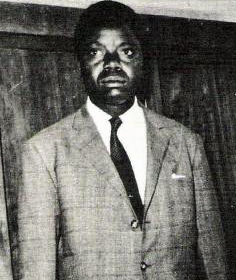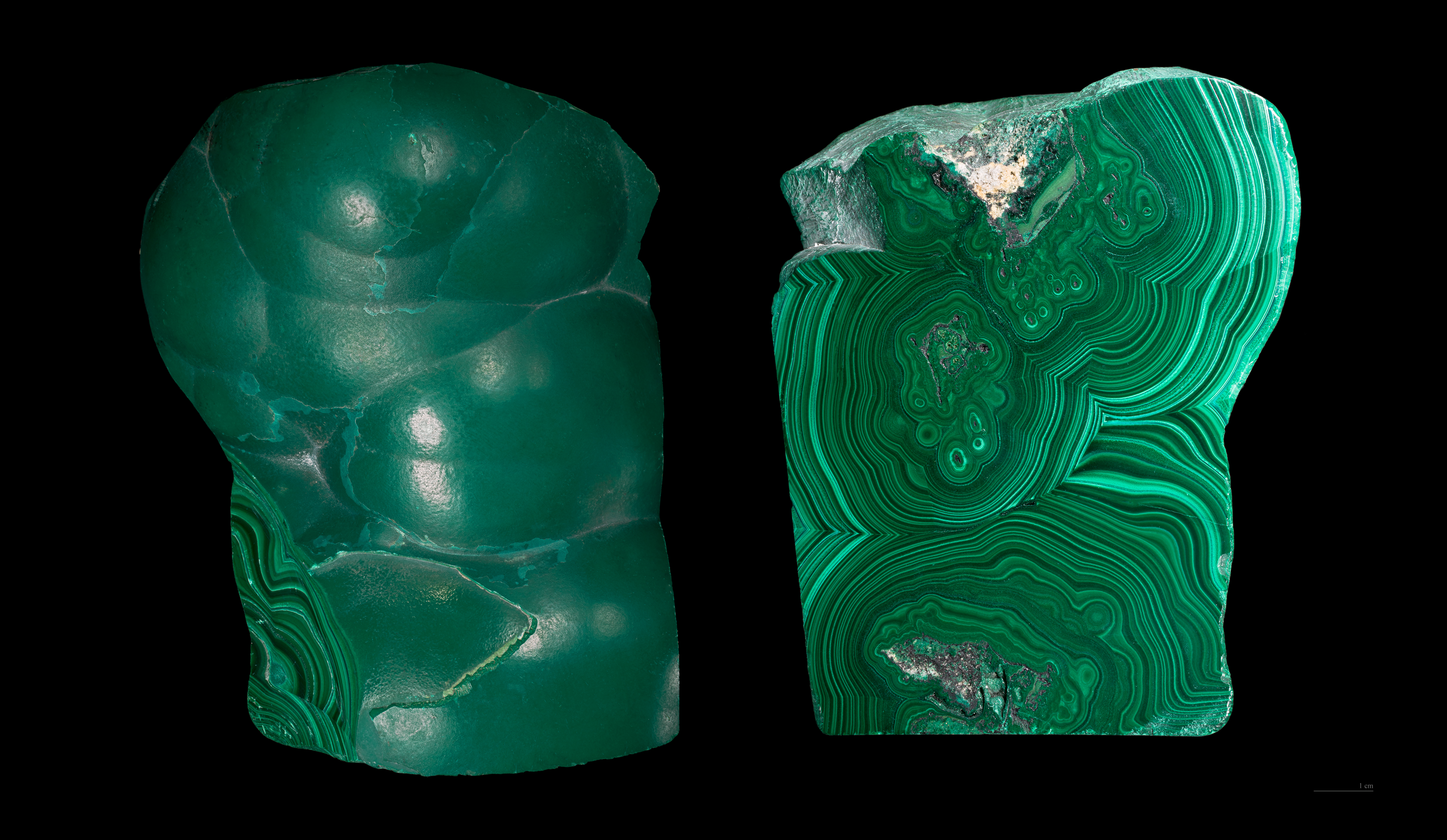|
Convention Nationale Congolaise
The Congolese National Convention (), also known as CONACO, was a federalist political alliance in the Democratic Republic of the Congo. It was formed and led by then Prime Minister, Moïse Tshombe. It consisted of a bloc of forty-nine parties from among the more than 200 parties that were formed primarily for participation in the 1965 general elections. CONACO primarily drew its strength from the southern portions of the country and succeeded the Katanga-based CONAKAT The Confederation of Tribal Associations of Katanga (; CONAKAT) was one of the main political parties in the Belgian Congo and was led by the pro-Western regionalist Moïse Tshombe and his interior minister, Godefroid Munongo. It became the rulin ... party. EISA Election results [...More Info...] [...Related Items...] OR: [Wikipedia] [Google] [Baidu] |
Federalism
Federalism is a mode of government that combines a general level of government (a central or federal government) with a regional level of sub-unit governments (e.g., provinces, State (sub-national), states, Canton (administrative division), cantons, territorial, territories, etc.), while dividing the powers of governing between the two levels of governments. Two illustrative examples of federated countries—one of the world's oldest federations, and one recently organized—are Australia #Government and politics, Australia and Federated States of Micronesia, Micronesia. Johannes Althusius (1563–1638), is considered the father of modern federalism, along with Montesquieu. In 1603, Althusius first described the bases of this political philosophy in his ''Politica Methodice Digesta, Atque Exemplis Sacris et Profanis Illustrata''. By 1748, in his treatise ''The Spirit of Law'', Montesquieu (1689-1755) observed various examples of federalist governments: in corporate societies, i ... [...More Info...] [...Related Items...] OR: [Wikipedia] [Google] [Baidu] |
Republic Of The Congo (Léopoldville)
The Republic of the Congo () was the period of the history of the Democratic Republic of the Congo between 1960 and 1971. Located in Central Africa, the state was created with the independence of the Belgian Congo in 1960. From 1960 to 1966, the country was also known as Congo-Léopoldville (after its capital) to distinguish it from its northwestern neighbor, which is also called the Republic of the Congo, alternatively known as "Congo-Brazzaville". In 1964, the state's official name was changed to the Democratic Republic of the Congo'','' but the two countries continued to be distinguished by their capitals; with the renaming of Léopoldville as Kinshasa in 1966, it became also known as Congo-Kinshasa. After Mobutu Sese Seko, Joseph Désiré Mobutu, commander-in-chief of the national army, Congo Crisis, seized control of the government in 1965, the Democratic Republic of the Congo became the Zaire, Republic of Zaire in 1971; but it was reverted back to the Democratic Republic ... [...More Info...] [...Related Items...] OR: [Wikipedia] [Google] [Baidu] |
Moïse Tshombe
Moïse Kapenda Tshombe (sometimes written Tshombé; 10 November 1919 – 29 June 1969) was a List of people from the Democratic Republic of the Congo, Congolese businessman and politician. He served as the president of the secessionist State of Katanga from 1960 to 1963 and as prime minister of the Republic of the Congo (Léopoldville), Democratic Republic of the Congo from 1964 to 1965. Tshombe was born to an aristocratic Lunda people, Lunda family and ran several businesses in Katanga Province before becoming involved in politics, cofounding the pro-Western, anti-communist CONAKAT party in 1958 and advocating for autonomy for Katanga province. Following the Republic of the Congo's accession to independence in June 1960, Tshombe became president of the autonomous province, and soon came into conflict with the central government's leftist prime minister, Patrice Lumumba. Accusing Lumumba of communist sympathies, Tshombe declared Katanga's independence as the breakaway State of Ka ... [...More Info...] [...Related Items...] OR: [Wikipedia] [Google] [Baidu] |
Democratic Republic Of The Congo General Election, 1965
General elections were held in the Democratic Republic of the Congo between 18 March and 30 April 1965, following the promulgation of a new constitution approved by a referendum the previous year. 223 political parties contested the election for 167 seats in the Chamber of Deputies.DRC: Electoral Operation of the 1965 election EISA The elections had originally been scheduled for the summer of 1964, but were postponed due to the Simba rebellion, ultimately taking place in March 1965. The process was "relatively free of fraud or rigging", except for in , where a lack of ballots and personnel de ... [...More Info...] [...Related Items...] OR: [Wikipedia] [Google] [Baidu] |
Katanga Province
Katanga was one of the four large provinces created in the Belgian Congo in 1914. It was one of the eleven provinces of the Democratic Republic of the Congo between 1966 and 2015, when it was split into the Tanganyika Province, Tanganyika, Haut-Lomami, Lualaba Province, Lualaba, and Haut-Katanga provinces. Between 1971 and 1997 (during the rule of Mobutu Sese Seko when Congo was known as Zaire), its official name was Shaba Province. Katanga's area encompassed . Farming and ranching are carried out on the Katanga Plateau. The eastern part of the province is a rich mining region which supplies cobalt, copper, tin, radium, uranium, and diamonds. The region's former capital, Lubumbashi, is the second-largest city in the Congo. History Copper mining in Katanga dates back over 1,000 years, and mines in the region were producing standard-sized ingots of copper for international transport by the end of the 10th century CE. In the 1890s, the province was beleaguered from the south by ... [...More Info...] [...Related Items...] OR: [Wikipedia] [Google] [Baidu] |
CONAKAT
The Confederation of Tribal Associations of Katanga (; CONAKAT) was one of the main political parties in the Belgian Congo and was led by the pro-Western regionalist Moïse Tshombe and his interior minister, Godefroid Munongo. It became the ruling party of the State of Katanga whose declaration of independence sparked the Congo Crisis. History Formation The ''Confédération des associations tribales du Katanga'' was formed in November 1958 by Tshombe, Munongo, Dominique Diur, and others in response to the developing sociopolitical situation in Katanga Province, Belgian Congo. At the time, immigrants from other parts of the Congo, notably Lulua and Baluba people of Kasai Province, made up 38% of Katanga's population. The "authentic Katangese" referred to them disparagingly as "strangers". The first president of CONAKAT was Munongo, who was quickly forced to cede leadership to Tshombe due to his work in the civil service. The CONAKAT ran in the national elections of 1960 on a re ... [...More Info...] [...Related Items...] OR: [Wikipedia] [Google] [Baidu] |
Dolf Sternberger
Dolf Sternberger (originally ''Adolf Sternberger''; 28 July 1907 – 27 July 1989) was a German people, German philosopher and political scientist at the University of Heidelberg. Biography Dolf Sternberger was born in Wiesbaden in 1907. He is known for his concept of citizenship in contemporary German political thought, and for coining the term "constitutional patriotism" (''Verfassungspatriotismus'') in 1979, on the occasion of the 30th anniversary of the Federal Republic of Germany.Jan-Werner Muller''Constitutional Patriotism'' Princeton University Press, 2008, p. 21. He died in Frankfurt/Main in 1989. Notes References * Bernhard Vogel (politician), Bernhard Vogel: ''Dolf Sternberger und die Politische Wissenschaft''. Heidelberg 2008. External links * "Sprachkritik", Nazism, and the German Conscience: the Career of Dolf SternbergerDolf-Sternberger-Gesellschaft e.V. 20th-century German philosophers 1907 births 1989 deaths Grand Crosses 1st class of the Order of Me ... [...More Info...] [...Related Items...] OR: [Wikipedia] [Google] [Baidu] |
Bernhard Vogel (politician)
Bernhard Vogel (; 19 December 1932 – 2 March 2025) was a German politician of the Christian Democratic Union (CDU). He was the 4th Minister President of Rhineland-Palatinate from 1976 to 1988 and the second Minister President of Thuringia from 1992 to 2003. He was the only person to have been head of two different German federal states and was the longest-governing Minister President of Germany. He served as the 28th and 40th President of the Bundesrat in 1976 to 1977 and 1987 to 1988. Life and career Early life and education Vogel was born in Göttingen on 19 December 1932 and grew up in Giessen. He received his ''Abitur'' in Munich in 1953, and began studies in political science, history, sociology, and economics, first in Heidelberg and then in Munich. He received his doctorate in 1960, while working as a research assistant at the Institute of Political Science at the University of Heidelberg. He became a lecturer there the following year, also working in adult educat ... [...More Info...] [...Related Items...] OR: [Wikipedia] [Google] [Baidu] |
Dieter Nohlen
Dieter Nohlen (born 6 November 1939) is a German academic and political scientist. He currently holds the position of Emeritus Professor of Political Science in the Faculty of Economic and Social Sciences of the University of Heidelberg. An expert on electoral system An electoral or voting system is a set of rules used to determine the results of an election. Electoral systems are used in politics to elect governments, while non-political elections may take place in business, nonprofit organizations and inf ...s and political development, he has published several books. Bibliography Books published by Nohlen include: *''Electoral systems of the world'' (in German, 1978) *''Lexicon of politics'' (seven volumes) *''Elections and Electoral Systems'' (1996) *''Elections in Africa: A Data Handbook'' (1999 with Michael Krennerich and Bernhard Thibaut) *''Elections in Asia and the Pacific: A Data Handbook'' (2001 with and Christof Hartmann) ** ''Volume 2: South East Asia, East ... [...More Info...] [...Related Items...] OR: [Wikipedia] [Google] [Baidu] |
1965 Democratic Republic Of The Congo General Election
General elections were held in the Republic of the Congo (Léopoldville), Democratic Republic of the Congo between 18 March and 30 April 1965, following the promulgation of a new constitution approved by a 1964 Republic of the Congo (Léopoldville) constitutional referendum, referendum the previous year. 223 political parties contested the election for 167 seats in the National Assembly of the Democratic Republic of the Congo, Chamber of Deputies.DRC: Electoral Operation of the 1965 election EISA The elections had originally been scheduled for the summer of 1964, but were postponed due to the Simba rebellion, ultimately taking place in March 1965. The process was "relatively free of fraud or rigging", except for in Kinshasa, where a lack of ballots and personnel delayed voting there by a month. [...More Info...] [...Related Items...] OR: [Wikipedia] [Google] [Baidu] |
Political Parties In The Democratic Republic Of The Congo
Politics () is the set of activities that are associated with making decisions in groups, or other forms of power relations among individuals, such as the distribution of status or resources. The branch of social science that studies politics and government is referred to as political science. Politics may be used positively in the context of a "political solution" which is compromising and non-violent, or descriptively as "the art or science of government", but the word often also carries a negative connotation.. The concept has been defined in various ways, and different approaches have fundamentally differing views on whether it should be used extensively or in a limited way, empirically or normatively, and on whether conflict or co-operation is more essential to it. A variety of methods are deployed in politics, which include promoting one's own political views among people, negotiation with other political subjects, making laws, and exercising internal and external ... [...More Info...] [...Related Items...] OR: [Wikipedia] [Google] [Baidu] |




